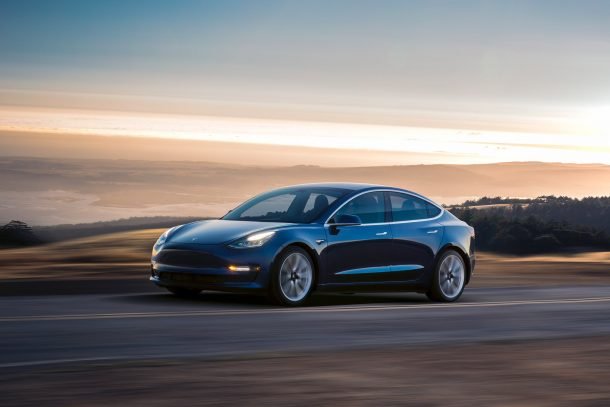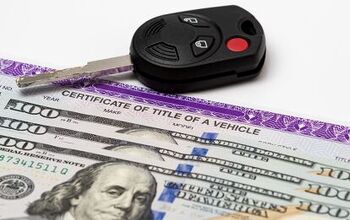Consumer Reports and Tesla Feud Continues Over Model 3

Tesla Motors and Consumer Reports have enjoyed a fairly contentious relationship with each other over the last few years. The nonprofit consumer advocacy organization had previously slighted the Model S for being unreliable and unsafe, but upgraded that analysis as Tesla continued improving the model. In this year’s consumer survey, the model received higher marks —receiving “above-average reliability for the first time ever.”
However, the Model X suffered a dismal showing and Tesla was outraged that CR gave the Model 3 a predictive average reliability score without even having driven it. The publication was quick to respond, however, and suggested the manufacturer may have misunderstood what was a fairly positive rating for an unproven platform.
While the exchanges seem somewhat trivial and maybe a little petty, this is the kind of automotive drama that’s simply too fun to ignore. For whatever reason, Tesla seems unwilling to remain silent whenever some bad publicity heads its way. While it’s far from the only automaker to do this, its relationship with Consumer Reports has been filled with very specific ups and downs.
The Model S P85D had previously been called “the best car ever” by the outlet, garnering praise from both customer surveys and road tests in 2015. But its recommendation was later rescinded, after the vehicle showcased glaring quality issues and renewed safety concerns. CR eventually restored the Model S to an “average” reliability rating but continued being exceptionally hard on the Model X.
With the Model 3 now in production, albeit at an exceptionally low volume, Consumer Reports included it as part of its annual vehicle survey. However, with so few examples to draw data from, it gave the unit a predictive reliability score. Tesla responded immediately, claiming the outlet’s reporting was “consistently inaccurate and misleading to consumers” while specifying that it was “important to note that Consumer Reports has not yet driven a Model 3, let alone do they know anything substantial about how the Model 3 was designed and engineered.”
The following day, Consumer Reports issued a response to Tesla’s complaints in self-defense. “Tesla does garner an outsized level of attention, scrutiny and discussion by the media,” read the statement. “While we appreciate Tesla’s efforts to typically embrace and navigate, if not directly steer, this attention, we would like to offer some clarity on the examples they cite.”
“Tesla appears unhappy that CR expects the new-to-market Tesla Model 3 to be of average reliability, which is generally a positive projection for any first model year of a car. This expectation is based on CR’s 2017 Annual Reliability Survey, measuring the dependability as opposed to the satisfaction, of more than 300 car models, model year 2000 to 2017, using the responses of individual owners of more than 640,000 vehicles.”
While the majority of the posting discussed the company’s objective analysis of all models and its the methodology behind them, it did save a little venom for when it poked at Tesla’s painfully slow progress on the Model 3’s production: “As with all the cars we review, you can rest assured that we will thoroughly test and evaluate the Model 3 with the same care and scrutiny we apply to all the cars we test just as soon as we can get one — we’re waiting patiently along with other consumers.”
[Image: Tesla Motors]

A staunch consumer advocate tracking industry trends and regulation. Before joining TTAC, Matt spent a decade working for marketing and research firms based in NYC. Clients included several of the world’s largest automakers, global tire brands, and aftermarket part suppliers. Dissatisfied with the corporate world and resentful of having to wear suits everyday, he pivoted to writing about cars. Since then, that man has become an ardent supporter of the right-to-repair movement, been interviewed on the auto industry by national radio broadcasts, driven more rental cars than anyone ever should, participated in amateur rallying events, and received the requisite minimum training as sanctioned by the SCCA. Handy with a wrench, Matt grew up surrounded by Detroit auto workers and managed to get a pizza delivery job before he was legally eligible. He later found himself driving box trucks through Manhattan, guaranteeing future sympathy for actual truckers. He continues to conduct research pertaining to the automotive sector as an independent contractor and has since moved back to his native Michigan, closer to where the cars are born. A contrarian, Matt claims to prefer understeer — stating that front and all-wheel drive vehicles cater best to his driving style.
More by Matt Posky
Latest Car Reviews
Read moreLatest Product Reviews
Read moreRecent Comments
- Analoggrotto I don't see a red car here, how blazing stupid are you people?
- Redapple2 Love the wheels
- Redapple2 Good luck to them. They used to make great cars. 510. 240Z, Sentra SE-R. Maxima. Frontier.
- Joe65688619 Under Ghosn they went through the same short-term bottom-line thinking that GM did in the 80s/90s, and they have not recovered say, to their heyday in the 50s and 60s in terms of market share and innovation. Poor design decisions (a CVT in their front-wheel drive "4-Door Sports Car", model overlap in a poorly performing segment (they never needed the Altima AND the Maxima...what they needed was one vehicle with different drivetrain, including hybrid, to compete with the Accord/Camry, and decontenting their vehicles: My 2012 QX56 (I know, not a Nissan, but the same holds for the Armada) had power rear windows in the cargo area that could vent, a glass hatch on the back door that could be opened separate from the whole liftgate (in such a tall vehicle, kinda essential if you have it in a garage and want to load the trunk without having to open the garage door to make room for the lift gate), a nice driver's side folding armrest, and a few other quality-of-life details absent from my 2018 QX80. In a competitive market this attention to detai is can be the differentiator that sell cars. Now they are caught in the middle of the market, competing more with Hyundai and Kia and selling discounted vehicles near the same price points, but losing money on them. They invested also invested a lot in niche platforms. The Leaf was one of the first full EVs, but never really evolved. They misjudged the market - luxury EVs are selling, small budget models not so much. Variable compression engines offering little in terms of real-world power or tech, let a lot of complexity that is leading to higher failure rates. Aside from the Z and GT-R (low volume models), not much forced induction (whether your a fan or not, look at what Honda did with the CR-V and Acura RDX - same chassis, slap a turbo on it, make it nicer inside, and now you can sell it as a semi-premium brand with higher markup). That said, I do believe they retain the technical and engineering capability to do far better. About time management realized they need to make smarter investments and understand their markets better.
- Kwik_Shift_Pro4X Off-road fluff on vehicles that should not be off road needs to die.


































Comments
Join the conversation
CR makes it very clear that it's a "predicted" rating, based on historical reliability from the brand. We use "predicted" measures for everything we do. Want to hire a roofer? A babysitter? You're going to look at historical data and "predict" behavior. If Tesla wants to complain about the car being given a less than stellar predictive score, then they should make their other cars more reliable. Didn't CR predict the 3 would be "average"? Frankly that's a gift -- instead of stirring the pot they should be thanking their lucky stars CR predicted "average", seeing as how the 3 is produced in the same factory, by the same people, with many of the same parts, as their Model S and X, which are two of the least reliable vehicles in history. The likelihood of the Model 3 being magically bulletproof despite all the issues the S and X have had is, in fact, pretty slim. But there we go "predicting" again.
Confirmational bias is amazing. When CR was crushing the American brands and saying the Prius was the best vehicle you could buy, and Toyota "predicted reliability," was consistently above average automatically, it was the gospel truth. Now that the darling Tesla is being held to an unchanged standard, CR is part of the vast conspiracy to destroy the electric car - predicted reliability de damned. Delicious popcorn.